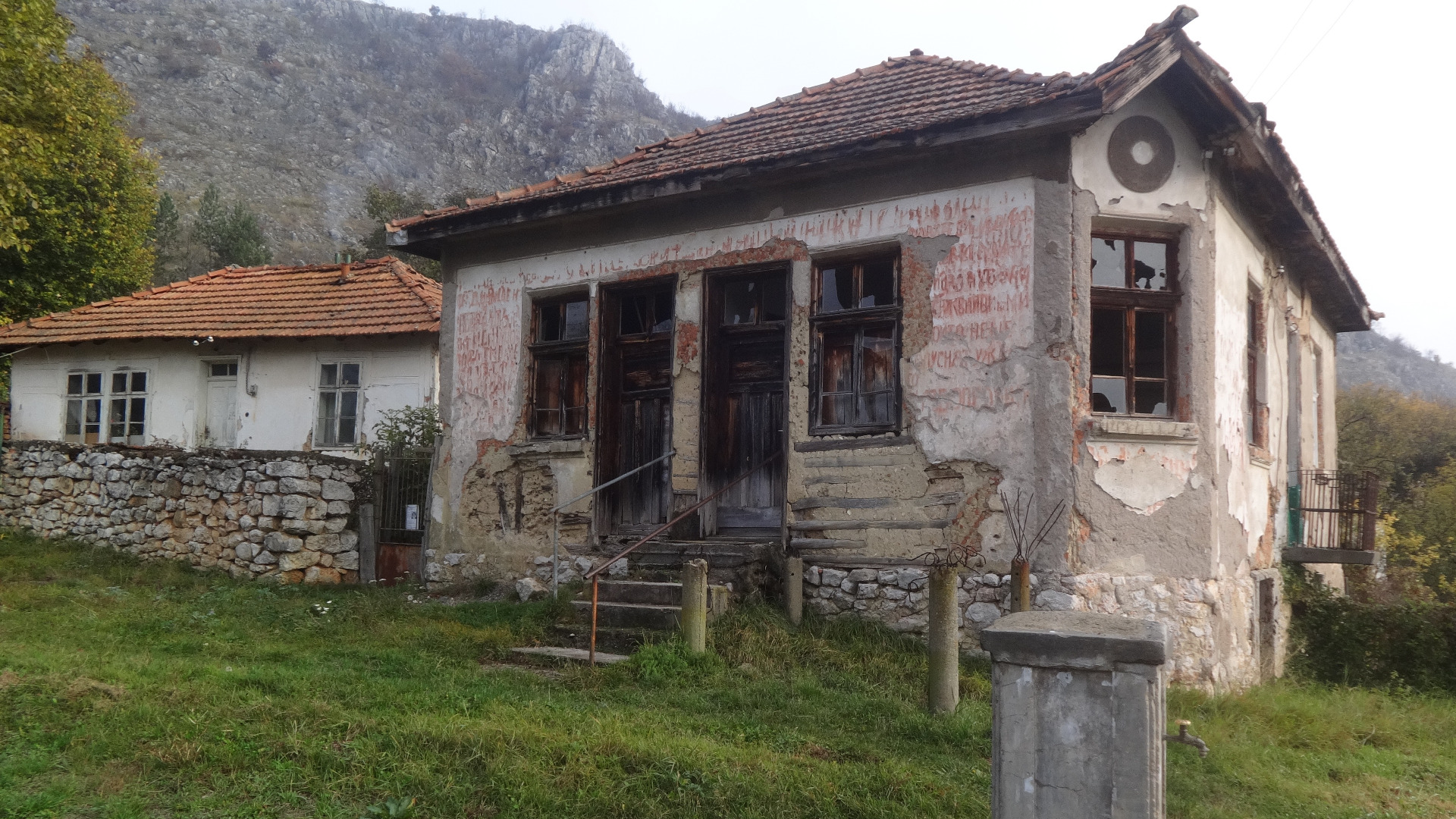“There were so many of us – sooo many! The village was a jewel! And no holiday would go by without us getting together. It was a marvel – dancing, singing commotion!” – says 90-year old Elena Stoykova from the border village of Tsurvaritsa, talking to journalist Rumen Stoichkov. “All night I sit there thinking – what it was like then, what it is like now,” she says and goes on that since the day she was born she has never stopped working, never even one day off, but that now she has nothing to be glad of.
Rumen Stoichkov, journalist from the Bulgarian National Radio, has put together thoughts such as these by people from dwindling Bulgarian villages in his new book. He has driven to hundreds of towns and villages across the country in his own car, guided by his curiosity and an endeavour to find out more about the people and the past of the places they live in. He says that journalists are in their debt, because they are so eager for someone to hear them out, for someone to notice them, that their biggest wealth is their wisdom, the wisdom they have accumulated through the years that has stood the test of time. Rumen Stoichkov does not alter the words of the wise old people in his book, conveying them word for word, because their words are imbued with a profound intensity. The title itself - “Heart laid bare” – is an expression of the author’s deep gratitude to all storytellers he has encountered on his way.
The book was presented at a literary club in Sofia and earned the well-deserved appreciation of readers. Poet and journalist Rumen Leonidov describes it as: “an audacious and true to life photograph of latter-day Bulgaria, a keepsake for the generations to come.”
“I won’t say that it is reading matter for politicians,” Rumen Leonidov says. “Because that is just not going to happen. The book is a gallery of portraits, people who live in our day, in our country, people of different generations. The fact that a journalist comes along to talk to people, that he takes notice of them is not significant in itself, but it is a significant fact that this gives them hope. In everything written by Rumen Stoichkov we, all of us, can see our own reflection, it is a sign to the people that will come after us.”
All villages Rumen Stoichkov chose to go to are located in scenic spots, the geography of which is meticulously described in the book. “Villages down in the valley are of no interest to me. The villages I write about are mostly up in the hills. Life is more difficult there, but people are wiser and seem closer to God and not at all close to the state or its institutions.

Many of us would find it hard to imagine the conditions people in these places live in,” says Rumen Stoichkov and adds:
“Over the radio I talk about problems, in the book I try to put down on paper things that are very typical and valuable – tradition, local customs, relations among people. I find inspiration in meeting a wise man and then I want to tell his story. I remember Gostilitsa – a village some 20 kilometres from Gabrovo, where there is a ritual called “yalova poluda” – barren frenzy. On 15 February people in the village get together at one of the houses, mostly women. And they start making the rounds of the village – knocking on doors, the pub, the café, the shop, all places where there are people. And if they see a man, they grab him and try to lift him up into the air. In this ritual men are supposed to buy themselves off with money. They have to put everything they have in their pockets into a bag, carried by the women. Of course, some manage to run away, but others allow the women to lift them up into the air. This is a ritual performed to ward off infertility and is done for fun. At nightfall they all come together in someone’s yard where they light a big fire and then jump over it. The fun goes on into the night – a way for people to meet and communicate. It is such fun to be able to hear all about this vanishing ritual, a ritual I have seen nowhere else. I hope that this book will not sound sad. Wherever I have felt there are stories to be told, wherever there is a wealth of folklore and tradition, I have put them down on paper.”
English version: Milena Daynova
"Every day, we should think about peace and the messages that politicians send,” journalist Tsvetana Paskaleva, who has been living in Armenia for 30 years, says. "The situation around us and in neighbouring countries is unstable and..
Conservationists from Bulgaria Bird Walks are organising a birdwatching walk in Varna today to observe water fowl and forest birds. Two walks are planned in the Sea Garden at 9.00 and 13.00. There will be similar outings every month in the city, said..
The greater flamingo was considered an exotic species for Bulgaria, but for several years, entire colonies have chosen the lakes around Burgas as their residence. Currently, more than 450 flamingos inhabit the Burgas wetlands ...

+359 2 9336 661
